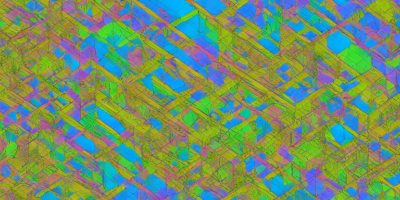Token algorithms are a crucial component of modern machine learning, as they enable efficient and effective processing of large datasets. However, designing these algorithms can be challenging due to the complex interactions between different components. In this article, Hendrikx presents a new framework for token algorithm design that addresses these challenges.
The author begins by highlighting the importance of token algorithms in machine learning, particularly in the context of fairness and transparency. Token algorithms are used to break down large datasets into smaller, more manageable pieces, allowing machines to learn from them more efficiently. However, without proper design, token algorithms can perpetuate biases and inequalities present in the original data. Hendrikx’s framework aims to address this issue by providing a principled approach to token algorithm design.
The author then delves into the details of the proposed framework. The key innovation is the introduction of "tokens," which are used to represent different parts of the input data. These tokens can be combined in various ways to create new datasets, allowing for more efficient learning and processing. Hendrikx shows how this approach can be applied to a variety of machine learning tasks, including classification and optimization.
One of the main advantages of the proposed framework is its ability to handle complex interactions between different components. By using tokens, Hendrikx’s algorithm can capture these interactions in a more precise manner than traditional token algorithms. This leads to improved performance and accuracy in machine learning models.
Hendrikx also addresses the issue of fairness in token algorithms. Traditional token algorithms often prioritize efficiency over fairness, leading to biased models that perpetuate existing inequalities. The proposed framework incorporates fairness constraints into the design process, ensuring that the resulting algorithms are more inclusive and equitable.
Finally, Hendrikx provides a detailed analysis of the theoretical properties of the proposed framework. He shows that the algorithm is guaranteed to converge to the optimal solution under certain conditions, providing a basis for further research in this area.
In summary, Hendrikx’s article presents a groundbreaking new framework for token algorithm design that addresses the challenges of complexity and fairness. By introducing "tokens" as a novel approach to representing input data, the author shows how machine learning models can be more efficient, accurate, and fair. This work has significant implications for the field of machine learning and beyond, paving the way for more advanced and equitable algorithms in the future.
Mathematics, Optimization and Control
Fundamental Limits and Algorithms for Stochastic Convex Optimization with Markovian Data



